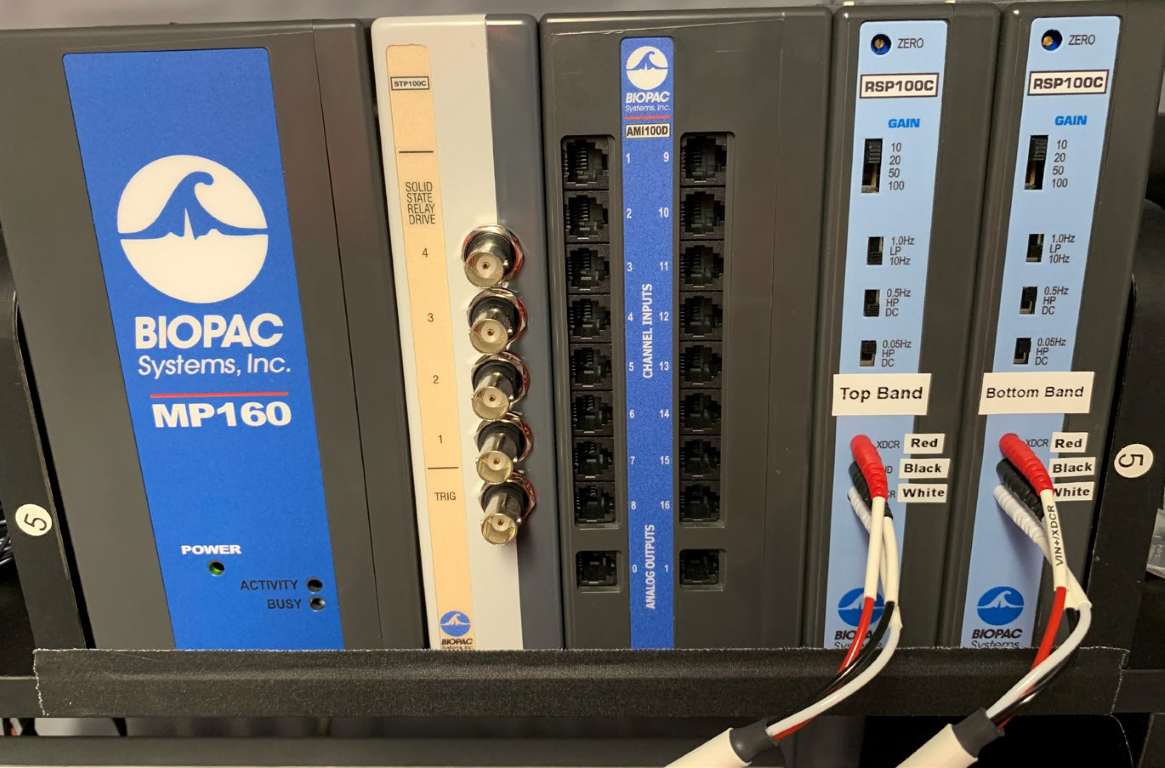About
The Cornell Phonetics Lab is a group of students and faculty who are curious about speech. We study patterns in speech — in both movement and sound. We do a variety research — experiments, fieldwork, and corpus studies. We test theories and build models of the mechanisms that create patterns. Learn more about our Research. See below for information on our events and our facilities.

Upcoming Events

21st April 2021 04:30 PM
Cornell Linguistics Circle Speaker Series: Dr. Matthew Goldrick of Northwestern University
The Cornell Linguistics Circle proudly presents Professor Matt Goldrick, chair of the Northwestern University Department of Linguistics.
Location: CLC Speaker Series: Matthew Goldrick5th May 2021 11:20 AM
PhonDAWG - Phonetics Lab Data Analysis Working Group
Sam will demonstrate how to use the screen command when working on a Linux server. That will only take about 10 minutes.
Please come prepared to discuss current research plans and bring questions if you have them.
Location:
6th May 2021 04:30 PM
Linguistics Colloquium Speaker: Dr. Mariapaola D'Imperio of Rutgers University,: Decoding intonational meaning is affected by individual cognitive differences: the role of empathy
The Department of Linguistics proudly presents Distinguished Professor Mariapaola D'Imperio from Rutgers University, Linguistics Department and Center for Cognitive Science (RuCCS).
Dr. Di'Imperio will give a talk titled:
Decoding intonational meaning is affected by individual cognitive differences: the role of empathy
Recent studies on intonational variability have unveiled that both group- and speaker-specific strategies are employed at the level of pragmatic meaning encoding. Some of this work has, for instance, shown that both regional and gender related priming can affect the way this mapping is actually implemented. However, research on the impact of listener’s cognitive differences, and especially pragmatic skills, on decoding intonational meaning is still in its infancy. In this talk I will show the results of two recent studies on the role of pragmatic skills on recovering intonational meaning. I will first briefly show the results of an Eyetracking study on processing French intonation to disambiguate homophonous items, showing the impact of Empathy Quotient (EQ) on recovering contrastive meaning (Esteve-Gibert et al. 2020). I will then present an offline perception experiment in which the role of pitch level within the nuclear contour of polar questions is tested as a predictor of degree of epistemic bias in a Southern variety of Italian, i.e. Salerno Italian (Orrico & D’Imperio 2020). Here, two independent sources of individual variability were uncovered: Listeners’ prolonged exposure to either a different language or variety and Empathy Quotient. Specifically, listeners' EQ is shown to have a complex interaction with both boundary tone level interpretation and the way listeners are affected by exposure to a different intonation system. I will then discuss the results in terms of viable theoretical models of intonational meaning decoding.
References:
Esteve-Gibert, N., Schafer, A., Hemforth, B., Portes, C., Pozniak, C. & D’Imperio, M. (2020). “Intonation and empathy in the online processing of contrastive meaning in French”. Memory & Cognition, 48(4), 566-580. https://doi.org/10.3758/s13421-019-00990-w
Orrico, R. & D’Imperio, M. (2020). “Individual empathy levels affect gradual intonation-meaning mapping: The case of biased questions in Salerno Italian”. Laboratory Phonology: Journal of the Association for Laboratory Phonology 11(1): 12, pp. 1–39. DOI: https://doi.org/10.5334/labphon.238
Location: Linguistics Colloquium Speaker: Dr. Mariapaola D'Imperio of Rutgers University
Facilities
The Cornell Phonetics Laboratory (CPL) provides an integrated environment for the experimental study of speech and language, including its production, perception, and acquisition.
Located in Morrill Hall, the laboratory consists of six adjacent rooms and covers about 1,600 square feet. Its facilities include a variety of hardware and software for analyzing and editing speech, for running experiments, for synthesizing speech, and for developing and testing phonetic, phonological, and psycholinguistic models.
Web-Based Phonetics and Phonology Experiments with LabVanced
The Phonetics Lab licenses the LabVanced software for designing and conducting web-based experiments.
Labvanced has particular value for phonetics and phonology experiments because of its:
- *Flexible audio/video recording capabilities and online eye-tracking.
- *Presentation of any kind of stimuli, including audio and video
- *Highly accurate response time measurement
- *Researchers can interactively build experiments with LabVanced's graphical task builder, without having to write any code.
Students and Faculty are currently using LabVanced to design web experiments involving eye-tracking, audio recording, and perception studies.
Subjects are recruited via several online systems:
- * Prolific and Amazon Mechanical Turk - subjects for web-based experiments.
- * Sona Systems - Cornell subjects for for LabVanced experiments conducted in the Phonetics Lab's Sound Booth

Computing Resources
The Phonetics Lab maintains two Linux servers that are located in the Rhodes Hall server farm:
- Lingual - This Ubuntu Linux web server hosts the Phonetics Lab Drupal websites, along with a number of event and faculty/grad student HTML/CSS websites.
- Uvular - This Ubuntu Linux dual-processor, 24-core, two GPU server is the computational workhorse for the Phonetics lab, and is primarily used for deep-learning projects.
In addition to the Phonetics Lab servers, students can request access to additional computing resources of the Computational Linguistics lab:
- *Badjak - a Linux GPU-based compute server with eight NVIDIA GeForce RTX 2080Ti GPUs
- *Compute server #2 - a Linux GPU-based compute server with eight NVIDIA A5000 GPUs
- *Oelek - a Linux NFS storage server that supports Badjak.
These servers, in turn, are nodes in the G2 Computing Cluster, which currently consists of 195 servers (82 CPU-only servers and 113 GPU servers) consisting of ~7400 CPU cores and 698 GPUs.
The G2 Cluster uses the SLURM Workload Manager for submitting batch jobs that can run on any available server or GPU on any cluster node.
Articulate Instruments - Micro Speech Research Ultrasound System
We use this Articulate Instruments Micro Speech Research Ultrasound System to investigate how fine-grained variation in speech articulation connects to phonological structure.
The ultrasound system is portable and non-invasive, making it ideal for collecting articulatory data in the field.

BIOPAC MP-160 System
The Sound Booth Laboratory has a BIOPAC MP-160 system for physiological data collection. This system supports two BIOPAC Respiratory Effort Transducers and their associated interface modules.

Language Corpora
- The Cornell Linguistics Department has more than 915 language corpora from the Linguistic Data Consortium (LDC), consisting of high-quality text, audio, and video corpora in more than 60 languages. In addition, we receive three to four new language corpora per month under an LDC license maintained by the Cornell Library.
- This Linguistic Department web page lists all our holdings, as well as our licensed non-LDC corpora.
- These and other corpora are available to Cornell students, staff, faculty, post-docs, and visiting scholars for research in the broad area of "natural language processing", which of course includes all ongoing Phonetics Lab research activities.
- This Confluence wiki page - only available to Cornell faculty & students - outlines the corpora access procedures for faculty supervised research.

Speech Aerodynamics
Studies of the aerodynamics of speech production are conducted with our Glottal Enterprises oral and nasal airflow and pressure transducers.

Electroglottography
We use a Glottal Enterprises EG-2 electroglottograph for noninvasive measurement of vocal fold vibration.

Real-time vocal tract MRI
Our lab is part of the Cornell Speech Imaging Group (SIG), a cross-disciplinary team of researchers using real-time magnetic resonance imaging to study the dynamics of speech articulation.

Articulatory movement tracking
We use the Northern Digital Inc. Wave motion-capture system to study speech articulatory patterns and motor control.
Sound Booth
Our isolated sound recording booth serves a range of purposes--from basic recording to perceptual, psycholinguistic, and ultrasonic experimentation.
We also have the necessary software and audio interfaces to perform low latency real-time auditory feedback experiments via MATLAB and Audapter.

